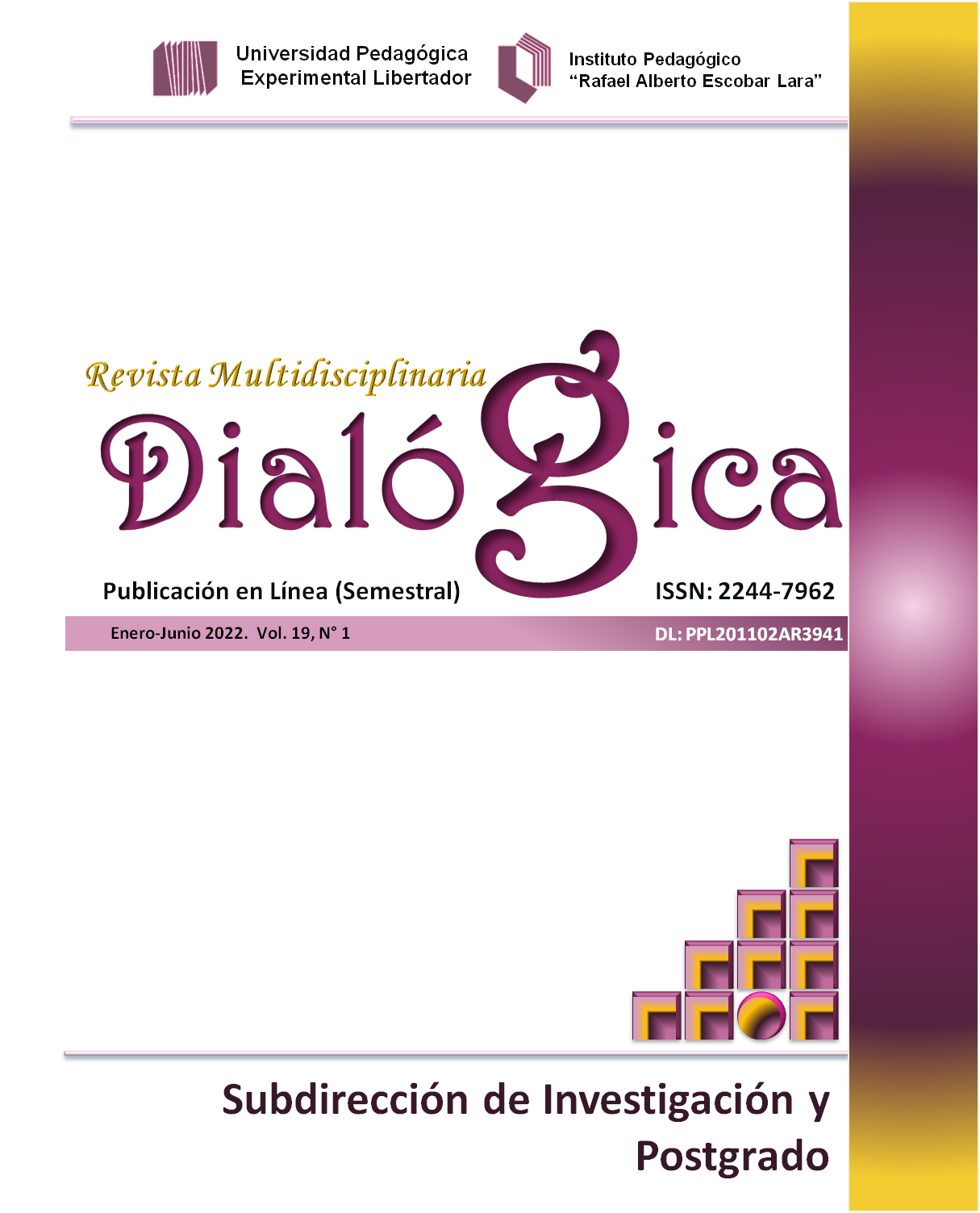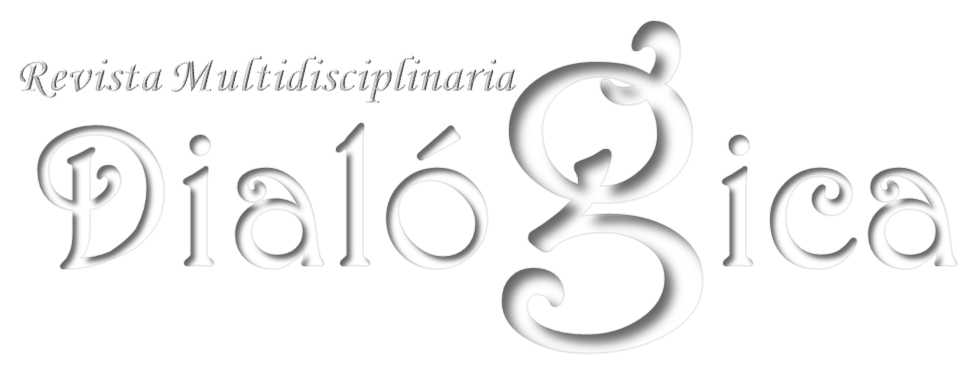UPEL-IPMAR'S EXTENSION POLICIES AND POPULAR CULTURE IN ARAGÜEÑA: A KNOT OF RELATIONSHIPS
DOI:
https://doi.org/10.56219/dialgica.v19i1.2030Keywords:
cultural heritage, belonging, national identityAbstract
This article constitutes the study and analysis of the Extension Policies of the Universidad Pedagógica Experimental Libertador, Instituto Pedagógico "Rafael Alberto Escobar Lara" of Maracay, (UPEL-IPMAR) with respect to the Popular Culture of Aragon. Through documentary and field research, with a qualitative ethnographic approach, it was determined that the UPEL-IPMAR's extension policies are not applied due to the university community's lack of knowledge of the culture of the State of Aragua, which adds to the diminished belonging and identity, little identification with the music, the language, and the lack of dissemination and promotion of the cultural heritage within the university. It is suggested that documentary material referring to the cultural manifestations of the State of Aragua be contributed to the Institute's libraries; that the participation of teachers and students be encouraged; and that these activities be more widely disseminated in the media of the region of Aragua.
References
Abad, L. (2005, abril). Hablemos, un poco, con el pasado. En Literatura y Cultura. Espacio para el encuentro. (pp. 78). Caracas: Fondo Editorial IPASME.
Bisquerra, R. (1989). Métodos de Investigación Educativa. España: Ceac.
García, W. (2003). Elementos que definen la Venezolanidad. Tesis de Magíster publicada. Universidad de Carabobo. Valencia.
Hermoso, V. (1999a). Filosofía: Una Matriz Cultural. Ediciones de la Fundación Cultura y Tradición.
Hermoso, V. (1999b). La Realidad como fuente generadora de Teoría. Maracay: Editorial Orituco.
Hernández, A. (1997). La Universidad como agente del cambio. Reflexiones. Publicaciones UPEL.
Martínez, M. (1999). Comportamiento Humano, Nuevos Métodos de Investigación. México. Editorial Trillas.
Mora, M. (2006). Artículo de Opinión. Diversidad Cultural: un encuentro para disfrutar en familia. (El Aragüeño, 28/07/06, p. 8)
Mora, M. (2021). Artículo Científico. Las Políticas de Extensión de la Universidad Pedagógica Experimental Libertador, Instituto Pedagógico “Rafael Alberto Escobar Lara” de Maracay y la Cultura Popular Aragüeña: Un Nudo de Relaciones”.
Padrón, A. (1985). Maracay en su Historia. Publicaciones del Concejo Municipal de Girardot. Maracay. Estado Aragua.
Pérez, I. (2004). La Cultura Organizacional de la UPEL-Maracay, según la percepción de sus Docentes. Tesis de Magíster publicada. Universidad Nacional Experimental Libertador. Instituto Pedagógico Experimental Libertador “Rafael Alberto Escobar Lara”-Maracay.
Resolución No. 338, Ministerio de Educación, Cultura y Deporte, (modificación del Reglamento General de la Universidad Pedagógica Experimental Libertador). (2000, noviembre 10). Gaceta Oficial de la República Bolivariana de Venezuela, 5.499, Extraordinario.
Salazar, A. (2002). San Mateo cuenta sus tradiciones a través de la Oralidad de sus pobladores. Tesis de Magíster publicada. Universidad de Carabobo, Valencia.
Santiago, C. y Castro G. (1998). Atlas del Estado Aragua. Maracay: Editorial El Aragüeño.


 @revistadialogica
@revistadialogica DialogicaUPEL
DialogicaUPEL RevistaDialogicaUPELMaracay
RevistaDialogicaUPELMaracay dialógicaupel@gmail.com
dialógicaupel@gmail.com dialogicaupel.blogspot.com
dialogicaupel.blogspot.com https://issuu.com/dialogicaupel
https://issuu.com/dialogicaupel https://revistas.upel.edu.ve/index.php/dialogica/
https://revistas.upel.edu.ve/index.php/dialogica/









